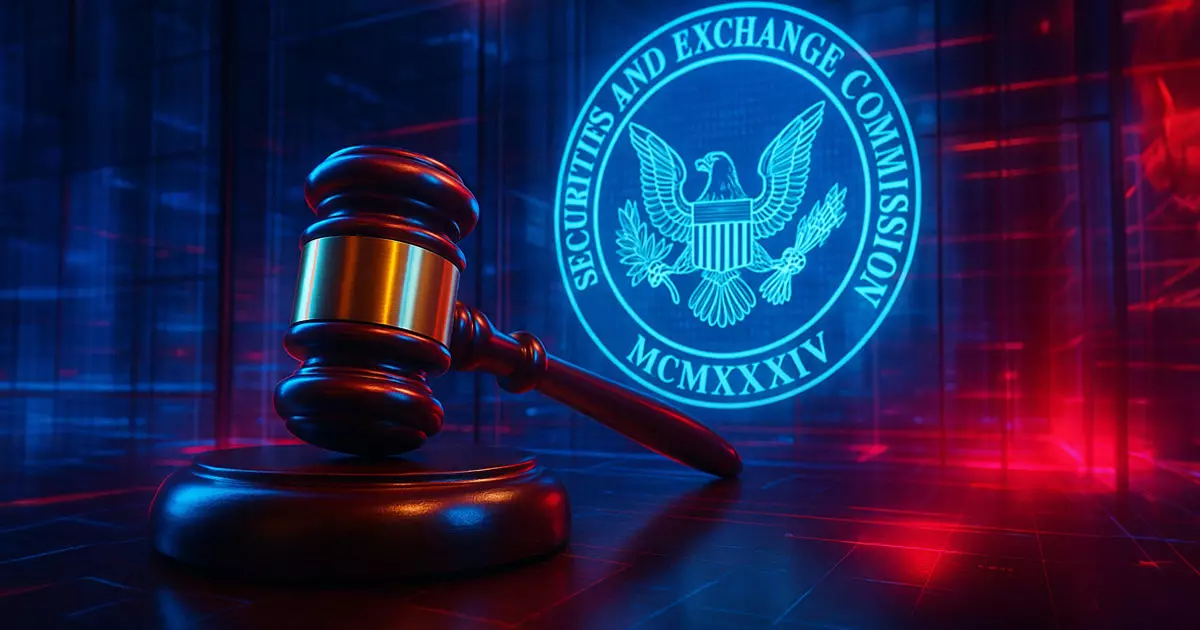The cryptocurrency industry is in a precarious position as regulatory pressures continue to mount, particularly at the state level, even after the departure of Gary Gensler as the Chair of the SEC. It’s a curious and troubling development that raises questions about the future of the crypto landscape in the United States. This transition doesn’t simply signify a change in leadership; it reveals an evolving regulatory strategy that may lead to prolonged confusion and chaos for crypto firms. The actions taken by state attorneys general (AGs) signal a significant shift, one that indicates that enforcement will likely ramp up rather than recede, creating a complex web of state regulations that threaten the viability of the burgeoning crypto sector.
The Rise of State-Level Lawsuits
Take, for instance, the Oregon Attorney General’s recent lawsuit against Coinbase. This legal action echoes previous efforts from the SEC but is engineered to stand alone under state law. The Attorney General’s office seems to have adopted a strategy of utilizing the SEC’s language and arguments to craft its own complaint while modifying certain terminologies to avoid direct parallels. This reflects a concerning trend: attorneys general are now mimicking federal regulatory efforts without the same level of scrutiny or expertise. The unfortunate consequence is a disorganized enforcement landscape where firms are left navigating a bewildering patchwork of regulations that could vary dramatically state by state.
No longer confined to the federal level, regulatory actions are trickling down into individual states like Oregon, where ambiguities in the law allow for aggressive enforcement actions focused on perceived threats to consumers and the financial system. Yet, these lawsuits don’t just imitate federal tactics; they also exploit the differences in legal frameworks that exist between state and federal jurisdictions, resulting in even more unpredictability for companies like Coinbase and others in the crypto space.
A Dangerous Pattern of Regulatory Duplication
Justin Slaughter, a former regulator and a knowledgeable voice in this field, has rightly pointed out that these state-level lawsuits are fundamentally flawed. The imposition of state-specific rules and regulations lacks cohesion, creating a nightmarish scenario for crypto firms striving for consistency in their operations. By taking legal action under state law, these AGs force firms to confront varying legal standards, making compliance not only challenging but almost Sisyphean.
Moreover, each state is entitled to its own legal interpretations and standards, leading to discrepancies that could significantly affect business models, decisions, and overall market viability. This regulatory game of “whack-a-mole” only fuels uncertainty among investors and entrepreneurs, disincentivizing innovation at a time when the U.S. should be leading the charge in cryptocurrency advancement.
The Call for Comprehensive Federal Legislation
What is the solution to this quagmire? A robust federal regulatory framework that allows for clear, consistent rules across all jurisdictions. Slaughter warns that the longer Congress hesitates to act, the more entrenched these state-level enforcement actions will become. A fragmented legal landscape will not only prolong litigation but also stifle growth. Crypto firms want clarity to operate efficiently, and that clarity can only come from cohesive federal guidelines that unify rather than divide.
Currently, state AGs are operating on a surfeit of discretion, a condition that can yield unpredictable outcomes and potentially debilitating liabilities for businesses. If left unregulated, a wide array of competing state laws could create a chaos that overwhelms the industry.
The time has come for lawmakers to take decisive action. Congress must prioritize the establishment of a balanced and well-defined regulatory environment, one that cultivates innovation while protecting consumers from potential pitfalls. The goal should be to create a system that accommodates the unique aspects of cryptocurrencies while safeguarding investments and fostering responsible growth.
The trajectory of regulatory enforcement at the state level poses grave risks for the future of the crypto industry. Without immediate and united federal legislation, the impending crisis may leave crypto companies in a state of despair, caught between conflicting laws and a hostile regulatory atmosphere. Balancing innovation and regulation is no easy feat, but without proactive measures, America risks losing its competitive edge in this revolutionary technological landscape.


Leave a Reply